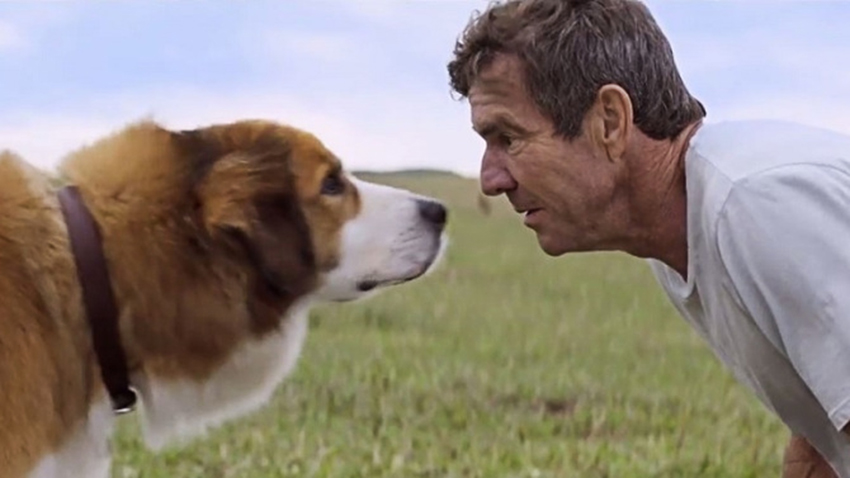One of the most universally agreed upon tragic moments in film is when the dog dies. “A Dog’s Purpose” recognized this and hopes to capitalize on the phenomenon, featuring not one but four dog deaths. It’s the same dog, too, reincarnated several times and experiencing life with different owners as he searches for the meaning of his existence.
Unfortunately, with each successive death the power of it diminishes, and Lasse Hallström’s “A Dog’s Purpose” never quite captures “Lassie” levels of emotion throughout its running time. This is an unabashedly sweet picture, though, and its sappy cornball humor will win over children. Adults may be less inclined for this doggie journey — “A Dog’s Purpose” works hard to elicit a reaction rather than let the story earn the tears it strives to create.
Josh Gad voices the film’s furry protagonist, Bailey, a lovable golden retriever who develops a strong bond with his owner, the eight-year-old Ethan (Bryce
Gheisar). Bailey’s early life in the 1960s is largely idyllic, in spite of Ethan’s father’s (Luke Kirby) descent into alcoholism.
As a teenager, Ethan (K.J. Apa) becomes a football star and falls in love with Hannah (Britt Robertson), and Bailey remains by his master’s side through thick and thin. When Ethan is injured following a jealous rival’s attempt to burn down his house, he loses his football scholarship to Michigan State and breaks up with Hannah out of anger.
Bailey dies not long after and is reborn as Ellie, a German Shepard police dog, and then as Tino, a scrappy corgi. While Bailey comes to love and help his new owners, his
memories linger on Ethan, and he hopes to one day reunite with him.
There are the makings of a great tale here, and the success of the novel on which this film is based is a testament to that. But “A Dog’s Purpose” as a movie is undercut by overuse of Rachel Portman’s saccharine score that is sometimes oppressive. Yes, we get it — the movie is simply whimsical.
The dialogue is also problematic, with characters explaining what they feel much too often when the talented cast should be conveying their emotions through their performances instead. In one laughable moment, Ethan’s father awkwardly complains about an impending attack by the Soviets when asked about his career, taking his cynicism to the extreme just so we can be sure he’s seriously depressed.
A lot of the film rests on Bailey, and Gad lends the tenderness the character needs but rarely gets more to do than interpret how excited or sad a dog can be. Because Bailey is the film’s primary perspective, “A Dog’s Purpose” uses his naivety to skirt around its darker plot points. You won’t find any contemplations of life’s tragedies; Bailey is too preoccupied with thoughts of bacon and butt-smelling. Bailey’s moments of insight into the human condition are too brief to fully register, and a slower film with fewer reincarnations may have afforded Gad more room to craft the character.
Due to an incriminating video recently released by TMZ, “A Dog’s Purpose” has been plagued by allegations of animal abuse. Whether or not a dog was forced into a performing a stunt against its will remains up to debate as PETA and the filmmakers clash, but “A Dog’s Purpose” itself is undoubtedly noble in its intentions. It has its problems, but it may serve as a valuable diversion for youngsters that will teach them the beauty of man’s best friend. There’s nothing wrong with that.












